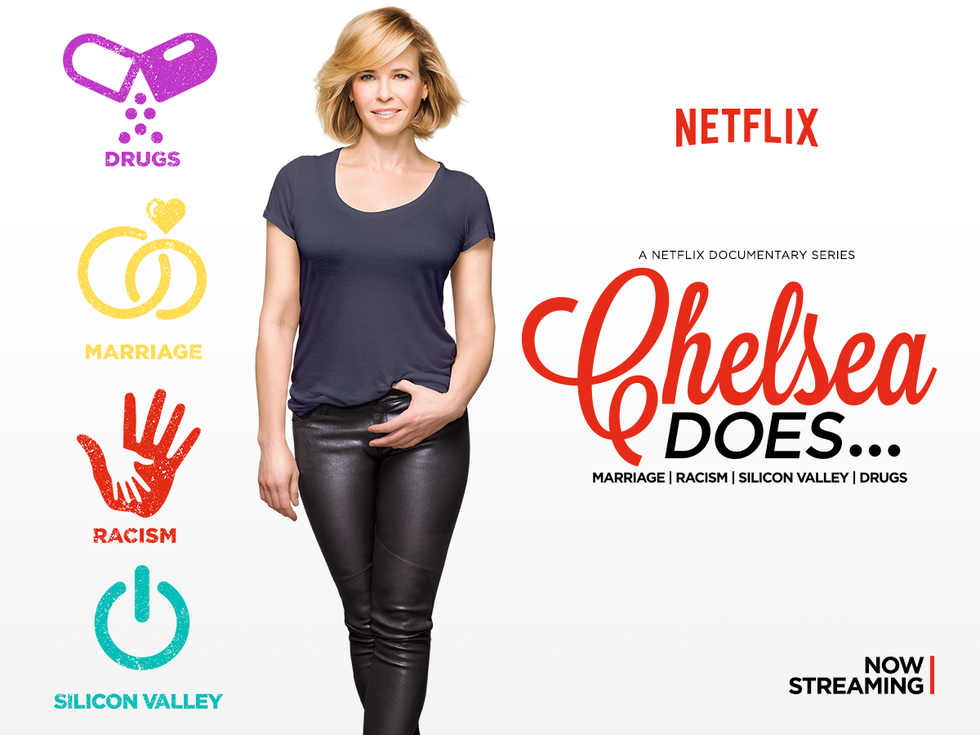Like many 20-something year old females, I have an extreme fondness and admiration for female comics. I both laughed and cried at Amy Schumer in Trainwreck as she weaved through a life of sexual liberation, falling in love and dealing with deep tragedy all while trying to live her best life. I felt inspired when Chelsea Handler blended both comedy and investigative journalism in her docu-series Chelsea Does. And I continue to stand in awe at the life of Tina Fey, for not only becoming the first female head writer for Saturday Night Live and creating two Emmy-award winning sitcoms, but for balancing both motherhood and family life along the way. For such a goofy profession where success relies on laughter, comedy seems to be the stepping stone towards an accepted definition of feminism, a profession that gives women the strength to express their given rights, ideals, and opinions in a society that continues to silence them.
Feminism is the common thread that ties so many of these funny ladies together. Even if many of this generation’s popular female comics don’t outwardly proclaim themselves as feminists, though most do, the very nature and content of their comedic material automatically make them feminists. However, strong female comics fighting for equality, while more popular and praised now, have been a staple of the feminist movement.
Many consider comedy a “boy’s club.” Anytime a female driven comedy hits the silver screen, every single press interview targets a female comedian and asks: “Isn’t it a great time for women in comedy?” This question is so outdated, repetitive, and utterly boring that it takes away from the success of past female comedians. The answer to this mundane question is yes, and quite frankly, it has been for many years.
Women have been the center of the most respected and well-known sitcoms, like I Love Lucy, The Mary Tyler Moore Show, and The Golden Girls. Carol Burnett is a living legend and made the beloved variety show format a nationwide hit. Joan Rivers, Whoopi Goldberg, Moms Mabley and Phyllis Dyller were some of the first female stand-up comedians, taking risks and talking about equality and life as a woman way before it was mainstream. When these women performed, everyone listened to what they had to say; not only women, but men as well. Even if the ideals of feminism were jokingly discussed to make the audience laugh, it still spread the word and ideals of gender equality, no matter the degree of seriousness. To be frank, none of these past comedians generally used the term “feminism,” but just the nature of their jokes and the topics of their material were deeply rooted in the women’s movement.
Unfortunately, there are some aspects of the professional comedy world that make it a boys club, and this fact ties back to feminism. In a recent interview with Bust magazine, when asked if it was amazing time for women in comedy, Tina Fey sheepishly said yes, but also stated, “Do I make what Will Ferrell makes? No.” While comedy has never been a total boys club looking at their paychecks would make you think otherwise. The unacceptable wage gap between men and women does not shy away from Hollywood, an issue becoming more and more prominent today.
But this is not an article about the pitfalls of modern day feminism and a commentary on how far we still have to go, but an example of a promising future where feminism is a universally accepted ideal. While we do live in a society where one of our presidential nominees is a sexist and mainstream media scrutinizes every prominent female down to trivial things like what they had to eat for breakfast, female comedians are continuing to set the tone and make feminism a widely accepted topic of conversation. Comedy is an art form that mocks cultural norms and society, and female comedians refuse to say silent. With both challenging societal norms and embracing feminism and equality, these comedians are making us listen by making us laugh. Burnett and Rivers did the legwork, Schumer, Dunham, and Fey are continuing their legacy. I, and I hope everyone willing to listen, learn from these fearless comedians and keep the conversation going.

























